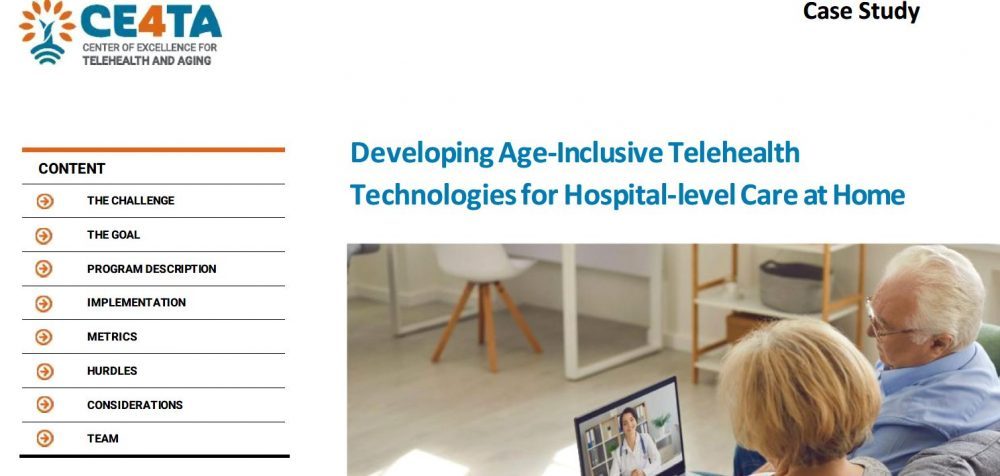This introductory course equips health care professionals with essential knowledge and strategies to deliver telehealth services that are person-centered, equitable, accessible, integrated, and coordinated. Participants will explore best practices for adapting telehealth to meet needs of aging populations, ensuring high-quality, inclusive care.
In this webinar, Dr. Dallas Nelson and Dr. Suzanne Gillespie, Associate Professors of Medicine at the University of Rochester School of Medicine and Dentistry, shared strategies for delivering telehealth services to older adults in post-acute and long-term care settings.
In this webinar Dr. Laurie Archbald-Pannone, Medical Director, and Anthony Nappi, Nurse Liaison of Virginia IMPACT at the University of Virginia School of Medicine, outlined approaches to strengthening telehealth delivery and care coordination for older adults with complex needs. A panel discussion followed with Dr. Christine Ritchie, Chair in Geriatrics and Director of Research in the Division of Palliative Care and Geriatric Medicine at Massachusetts General Hospital/Harvard Medical School, and Dr. Kristin Rising, Executive Director of the Jefferson Center for Connected Care and Professor at Thomas Jefferson University. The panel offered key perspectives on advancing equitable care for this vulnerable population.
This implementation guide provides healthcare providers and organizations with a comprehensive framework for delivering effective telebehavioral health services to older adults. Each behavioral health care model included offers practical examples of how to incorporate the Principles and Guidelines for Telehealth and Aging, ensuring the specific needs of older adults are met.
The person-centered care implementation strategies offer real-world examples of how healthcare providers and organizations can apply the Principle 1 Telehealth and Aging Guidelines across various clinical settings.

Case study highlighting how Medically Home’s technology and operational support are assisting health systems in delivering hospital-level care at home while addressing the unique needs of older adults.
Manuscript detailing how to create a workforce model that can be effective in improving oral health of adults 69 to 100 who live in a long-term care facility.
A review showing evidence on use of digital health technology with older adults during COVID-19 pandemic.
A paper discussing the findings from the CCARRE program whose aim is to provide care for older adults with cognitive impairment in New York City.
A qualitative study aimed to explore the benefits of telehealth for primary care physicians and their patients through semi-structured interviews.
This study aimed to increase telehealth usage among vulnerable, low-income, minority older adults by providing education on telehealth and addressing its barriers.

A commentary focused on the lessons and perspectives learned during the Covid-19 pandemic regarding telehealth utilization in LTCF.